بی خانمان ، یکی از آثار مشهور هکتور مالو (Hector Malot) ، رمان نویس اهل فرانسه است. با خانمان یکی دیگر از آثار معروف این نویسنده است.
معرفی و دانلود نسخه انگلیسی کتاب بیخانمان
Sans Famille
Nobody’s Boy
نویسنده:
هکتور مالو
Hector Malot
ترجمه از فرانسوی به انگلیسی:
Florence Crewe-Jones
درباره نسخه انگلیسی کتاب بی خانمان (Nobody’s Boy) نوشته هکتور مالو :
بی خانمان (Sans Famille)، یکی از آثار مشهور هکتور مالو (Hector Malot) ، رمان نویس اهل فرانسه است. با خانمان یکی دیگر از آثار معروف این نویسنده است.
سایر جلدهای این رمان نیز در سایت شهر کتاب برای مطالعه شما قرار داده شده است .
« بی خانمان » داستان زندگی پسری به نام رِمی است که موقع تولد ربوده می شود. بعد از اتفاقاتی گوناگون آقای باربرین و همسرش او را به فرزندی قبول می کنند، اما به دلیل تنگدستی، رِمی را به یک نوازنده ی دوره گرد می فروشند و… ماجراهای هیجان انگیز این پسر مهربان و شجاع، داستان خودباوری و مبارزه با سختی هاست.
چکیده نسخه انگلیسی کتاب بی خانمان (Nobody’s Boy) نوشته هکتور مالو :
رمی، پسری سر راهی است که در دهکده شاوانون بزرگ شده است. در سن هشت سالگی می فهمد که خانم باربرن، کسی که از بچگی او را بزرگ کرده است، مادر واقعی او نیست. از آنجا که خانواده ای که او را پیدا کرده اند وضعیت مالی خوبی نداشتند، پدر خوانده خشنش، ژرم، با ماندن او مخالف بود. ژرم، او را به مردی ایتالیایی به نام «ویتالیس» می فروشد. ارباب ویتالیس تعدادی حیوان دارد که با آن ها به شهر های مختلف سفر می کند و نمایش بازی می کند. رمی به گروه آن ها می پیوندد و …
بخشی از رمان بی خانمان (Nobody’s Boy):
من بچه ای سر راهی بودم. ولی تا هشت سالگی خیال می کردم مثل بچه های دیگر مادر دارم. هر وقت گریه می کردم، خانمی محکم مرا در آغوش می گرفت و آن قدر نوازشم می کرد تا ساکت شوم. هیچ وقت بدون بوسه ی او به رختخواب نمی رفتم. زمستان ها وقتی برف و کولاک به پنجره می کوبید، برایم آواز می خواند و پاهایم را با دست هایش گرم می کرد. هنوز آوازهایش را به یاد دارم. موقع چراندن گاومان اگر هوا توفانی می شد، در یک چشم به هم زدن خودش را به من می رساند و سر و دوشم را با دامن پشمی اش می پوشاند تا خیس نشوم. هروقت با یکی از بچه های ده دعوایم می شد، ازم می خواست ماجرا را برایش تعریف کنم. اگر مقصر بودم، با مهربانی قانعم می کرد و اگر حق با من بود، همراهی ام می کرد. به خاطر همه ی این ها و خیلی چیز های دیگر، به خاطر طرز حرف زدن، نگاهش و سرزنش های لطیفش، باورم شده بود که مادر من است. اسم ده ما یا بهتر است بگویم جایی که در آن بزرگ شدم « شاوانون » بود. راستش وضع زادگاهم، دست کمی از پدر و مادرم نداشت. هر دو نامعلوم بودند. شاوانون از محروم ترین جاهای فرانسه بود. فقط قسمت کمی از زمین هایش به درد کشاورزی می خورد و بقیه اش بایر و پوشیده از خس و خاشاک بود. خانه ی کوچک ما کنار یک جوی آب بود و من تا هشت سالگی مردی در خانه مان ندیده بودم. البته نامادری ام بیوه نبود. شوهرش در پاریس سنگ تراشی می کرد و از وقتی یادم می آمد، به روستا برنگشته بود. گاهی دهاتی هایی که مثل او در شهر سنگ تراشی می کردند، خبرهایی از او می آوردند.
توضیحات نسخه انگلیسی کتاب بی خانمان (Nobody’s Boy):
A compelling story in which orphaned Remi gets hired out to a traveling street entertainer when his foster parents fall on hard times. Going from village to village with its act, ‘nobody’s boy’ has numerous adventures until his boss also falls on hard times and perishes, homeless and destitute. Remi’s life includes a number of surprising twists and turns, leading to a climax and a very happy conclusion when he is reunited with his family.
بخشی از متن نسخه انگلیسی کتاب بی خانمان (Nobody’s Boy) :
CHAPTER I
MY VILLAGE HOME
I was a foundling. But until I was eight years of age I thought I had a mother like other children, for when I cried a woman held me tightly in her arms and rocked me gently until my tears stopped falling. I never got into bed without her coming to kiss me, and when the December winds blew the icy snow against the window panes, she would take my feet between her hands and warm them, while she sang to me. Even now I can remember the song she used to sing. If a storm came on while I was out minding our cow, she would run down the lane to meet me, and cover my head and shoulders with her cotton skirt so that I should not get wet.
When I had a quarrel with one of the village boys she made me tell her all about it, and she would talk kindly to me when I was wrong and praise me when I was in the right. By these and many other things, by the way she spoke to me and looked at me, and the gentle way she scolded me, I believed that she was my mother.
My village, or, to be more exact, the village where I was brought up, for I did not have a village of my own, no birthplace, any more than I had a father or mother—the village where I spent my childhood was called Chavanon; it is one of the poorest in France. Only sections of the land could be cultivated, for the great stretch of moors was covered with heather and broom. We lived in a little house down by the brook.
Until I was eight years of age I had never seen a man in our house; yet my adopted mother was not a widow, but her husband, who was a stone-cutter, worked in Paris, and he had not been back to the village since I was of an age to notice what was going on around me. Occasionally he sent news by some companion who returned to the village, for there were many of the peasants who were employed as stone-cutters in the city.
“Mother Barberin,” the man would say, “your husband is quite well, and he told me to tell you that he’s still working, and to give you this money. Will you count it?”
That was all. Mother Barberin was satisfied, her husband was well and he had work.
Because Barberin was away from home it must not be thought that he was not on good terms with his wife. He stayed in Paris because his work kept him there. When he was old he would come back and live with his wife on the money that he had saved.
One November evening a man stopped at our gate. I was standing on the doorstep breaking sticks. He looked over the top bar of the gate and called to me to know if Mother Barberin lived there. I shouted yes and told him to come in. He pushed open the old gate and came slowly up to the house. I had never seen such a dirty man. He was covered with mud from head to foot. It was easy to see that he had come a distance on bad roads. Upon hearing our voices Mother Barberin ran out.
“I’ve brought some news from Paris,” said the man.
Something in the man’s tone alarmed Mother Barberin.
“Oh, dear,” she cried, wringing her hands, “something has happened to Jerome!”
“Yes, there is, but don’t get scared. He’s been hurt, but he ain’t dead, but maybe he’ll be deformed. I used to share a room with him, and as I was coming back home he asked me to give you the message. I can’t stop as I’ve got several miles to go, and it’s getting late.”
But Mother Barberin wanted to know more; she begged him to stay to supper. The roads were so bad! and they did say that wolves had been seen on the outskirts of the wood. He could go early in the morning. Wouldn’t he stay?
Yes, he would. He sat down by the corner of the fire and while eating his supper told us how the accident had occurred. Barberin had been terribly hurt by a falling scaffold, and as he had had no business to be in that particular spot, the builder had refused to pay an indemnity.
“Poor Barberin,” said the man as he dried the legs of his trousers, which were now quite stiff under the coating of mud, “he’s got no luck, no luck! Some chaps would get a mint o’ money out of an affair like this, but your man won’t get nothing!”
“No luck!” he said again in such a sympathetic tone, which showed plainly that he for one would willingly have the life half crushed out of his body if he could get a pension. “As I tell him, he ought to sue that builder.”
“A lawsuit,” exclaimed Mother Barberin, “that costs a lot of money.”
“Yes, but if you win!”
Mother Barberin wanted to start off to Paris, only it was such a terrible affair … the journey was so long, and cost so much!
The next morning we went into the village and consulted the priest. He advised her not to go without first finding out if she could be of any use. He wrote to the hospital where they had taken Barberin, and a few days later received a reply saying that Barberin’s wife was not to go, but that she could send a certain sum of money to her husband, because he was going to sue the builder upon whose works he had met with the accident.
Days and weeks passed, and from time to time letters came asking for more money. The last, more insistent than the previous ones, said that if there was no more money the cow must be sold to procure the sum.
Only those who have lived in the country with the peasants know what distress there is in these three words, “Sell the cow.” As long as they have their cow in the shed they know that they will not suffer from hunger. We got butter from ours to put in the soup, and milk to moisten the potatoes. We lived so well from ours that until the time of which I write I had hardly ever tasted meat. But our cow not only gave us nourishment, she was our friend. Some people imagine that a cow is a stupid animal. It is not so, a cow is most intelligent. When we spoke to ours and stroked her and kissed her, she understood us, and with her big round eyes which looked so soft, she knew well enough how to make us know what she wanted and what she did not want. In fact, she loved us and we loved her, and that is all there is to say. However, we had to part with her, for it was only by the sale of the cow that Barberin’s husband would be satisfied.
A cattle dealer came to our house, and after thoroughly examining Rousette,—all the time shaking his head and saying that she would not suit him at all, he could never sell her again, she had no milk, she made bad butter,—he ended by saying that he would take her, but only out of kindness because Mother Barberin was an honest good woman.
Poor Rousette, as though she knew what was happening, refused to come out of the barn and began to bellow.
“Go in at the back of her and chase her out,” the man said to me, holding out a whip which he had carried hanging round his neck.
“No, that he won’t,” cried mother. Taking poor Rousette by the loins, she spoke to her softly: “There, my beauty, come … come along then.”
Rousette could not resist her, and then, when she got to the road, the man tied her up behind his cart and his horse trotted off and she had to follow.
We went back to the house, but for a long time we could hear her bellowing. No more milk, no butter! In the morning a piece of bread, at night some potatoes with salt.
Shrove Tuesday happened to be a few days after we had sold the cow. The year before Mother Barberin had made a feast for me with pancakes and apple fritters, and I had eaten so many that she had beamed and laughed with pleasure. But now we had no Rousette to give us milk or butter, so there would be no Shrove Tuesday, I said to myself sadly.
But Mother Barberin had a surprise for me. Although she was not in the habit of borrowing, she had asked for a cup of milk from one of the neighbors, a piece of butter from another, and when I got home about midday she was emptying the flour into a big earthenware bowl.
“Oh,” I said, going up to her, “flour?”
- لینک دانلود فایل بلافاصله بعد از پرداخت وجه به نمایش در خواهد آمد.
- همچنین لینک دانلود به ایمیل شما ارسال خواهد شد به همین دلیل ایمیل خود را به دقت وارد نمایید.
- ممکن است ایمیل ارسالی به پوشه اسپم یا Bulk ایمیل شما ارسال شده باشد.
- پسورد تمامی فایل ها www.bibliofile.ir است.
- در صورتی که به هر دلیلی موفق به دانلود فایل مورد نظر نشدید با ما تماس بگیرید.
- در صورتی که این فایل دارای حق کپی رایت و یا خلاف قانون می باشد ، لطفا به ما اطلاع رسانی کنید.
 بیبلیوفایل | بزرگترین مرکز فروش محصولات دانلودی
بیبلیوفایل | بزرگترین مرکز فروش محصولات دانلودی

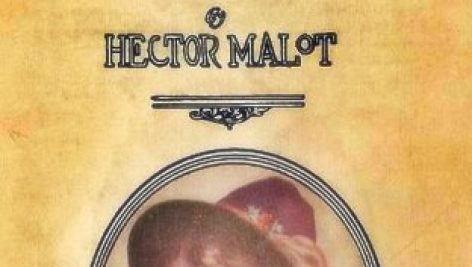
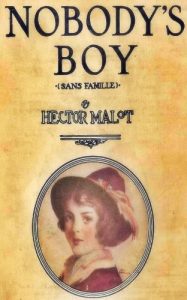
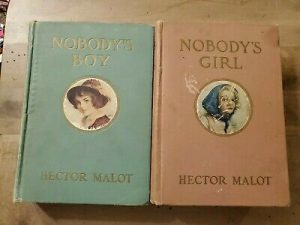






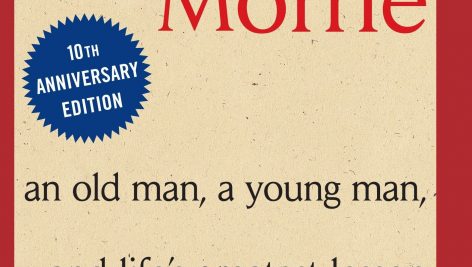



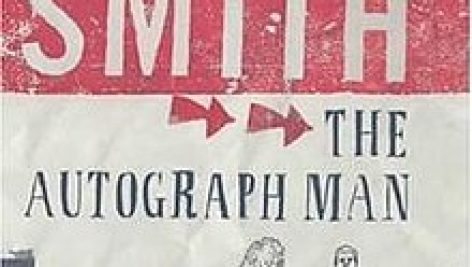
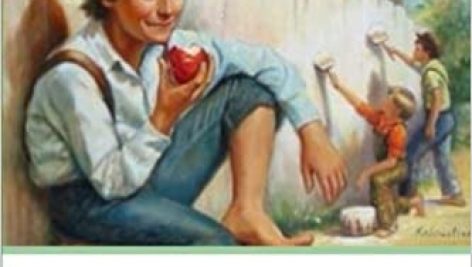
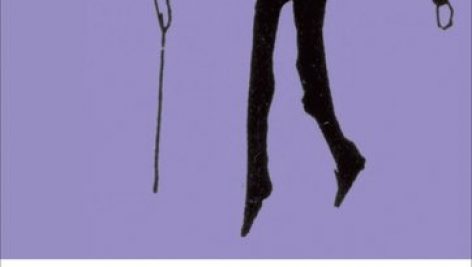

هنوز هیچ نقد و بررسی وجود ندارد.